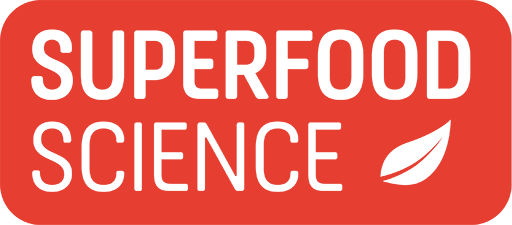Mushrooms have long been part of traditional wellness systems. Today, modern science is investigating how certain beta-glucans—complex carbohydrates found in mushrooms—may help support the immune system, particularly by enhancing the function of natural killer (NK) cells. These cells are crucial for immune surveillance, as they work to identify and neutralize abnormal or infected cells.
Agaricus blazei: Supporting Immune Recovery During Chemotherapy
A randomized clinical trial involving patients undergoing chemotherapy for gynecological cancers examined the effects of Agaricus blazei extract compared to a placebo (Ahn et al., 2004). Participants consumed the extract orally throughout their treatment.
Outcome: Those who received the mushroom extract had a significant increase in NK cell activity compared to those receiving a placebo.
Additional findings: Participants also reported improvements in appetite and general well-being.
While this suggests a potential role for Agaricus blazei extract in supporting immune resilience during periods of stress, the study authors emphasize the need for larger-scale trials.
Turkey Tail (Trametes versicolor): A Widely Studied Immune Modulator
One of the well-studied mushrooms for immune health, Turkey Tail contains a beta-glucan-rich compound known as polysaccharide-K (PSK). In clinical settings, PSK has been evaluated as an adjunct to conventional treatment, particularly in East Asian countries.
In a small phase I trial involving women recovering from breast cancer treatment, PSK supplementation led to a measurable increase in NK cell cytotoxicity and other markers of immune activation (Jiang et al., 2017).
Additional clinical trials in immune-compromised populations have shown PSK may help maintain or restore NK function when immune cells are suppressed.
These findings suggest that Turkey Tail beta-glucans may help support immune cell function, although further research is ongoing.
Mushroom Blends: Immune Support Beyond a Single Species
Some clinical trials have used multi-mushroom formulations containing Agaricus blazei in combination with mushrooms like Lion’s Mane or Maitake. In one such study of individuals undergoing high-dose chemotherapy, a mushroom blend rich in Agaricus blazei was associated with improved NK cell activity and healthy cytokine responses (Hetland et al., 2020).
These results suggest that synergistic effects between multiple mushrooms may contribute to immune modulation, although specific bioactive compounds and optimal combinations have yet to be standardized in research.
How Beta-Glucans Work with NK Cells
Beta-glucans from mushrooms don’t act directly like pharmaceutical drugs. Instead, they function as biological response modifiers, training the immune system to respond more efficiently. Here's how they work at the cellular level to enhance natural killer (NK) cell function:
1. Receptor Binding and Signaling Activation
After mushroom beta-glucans are consumed, they make their way to special immune areas in the gut. Here, they interact with immune cells like macrophages and dendritic cells. These cells have "sensors" that can detect beta-glucans, which trigger a chain reaction. This leads the immune cells to release special messenger proteins—called cytokines—that help activate NK cells and prepare them to defend the body (Chan et al., 2009).
2. Enhanced Cytotoxic Activity
Once activated, NK cells become more effective at their job—spotting and destroying unhealthy or abnormal cells. They release powerful substances that can break down the outer walls of these unwanted cells. In lab and animal studies, administering beta-glucans to mice enhanced the activity of their NK cells in fighting tumor cells (Kodama et al., 2002).
3. Increased Production of Immune Messengers
Beta-glucans also help the body produce more of certain immune messengers, like IFN-γ and IL-2. These act like communication signals that tell NK cells to multiply and stay active. They also help other parts of the immune system work together more effectively during times of stress or illness (Ikewaki et al., 2007
Safety Considerations
Mushroom-derived beta-glucans are available in dietary supplement forms such as capsules, powders, and teas. Clinical studies report good tolerability; however, individuals with allergies, autoimmune conditions, or those on immunosuppressive therapy and medications should speak with a healthcare provider before use.
Conclusion: A Promising Area of Immune Research
Clinical studies suggest that beta-glucans from mushrooms like Agaricus blazei and Turkey Tail may help support natural killer (NK) cell activity during times of immune stress, such as chemotherapy. While more large-scale trials are needed, existing data are encouraging and point to a safe, food-based approach to immune system support.
For those exploring natural ways to maintain immune health, mushroom-derived beta-glucans offer a research-backed option worth discussing with your healthcare team.
References
1. Ahn, W.-S., Kim, D.-J., Chae, G.-T., Lee, J.-M., Bae, S.-M., Sin, J.-I., Kim, Y.-W., Namkoong, S.-E., & Lee, I. P. (2004). Natural killer cell activity and quality of life were improved by consumption of a mushroom extract, Agaricus blazei Murill Kyowa, in gynecological cancer patients undergoing chemotherapy. International Journal of Gynecological Cancer, 14(4), 589–594. https://doi.org/10.1111/j.1048-891X.2004.14406.x
2. Chan, G. C. F., Chan, W. K., & Sze, D. M. Y. (2009). The effects of beta-glucan on human immune and cancer cells. Journal of Hematology & Oncology, 2(1), 25. https://doi.org/10.1186/1756-8722-2-25
3. Hetland, G., Tangen, J.-M., Mahmood, F., Mirlashari, M. R., Nissen-Meyer, L. S. H., Nentwich, I., ... & Johnson, E. (2020). Antitumor, anti-inflammatory and antiallergic effects of Agaricus blazei mushroom extract and related medicinal Basidiomycetes mushrooms: A review of preclinical and clinical studies. Nutrients, 12(5), 1339. https://doi.org/10.3390/nu12051339
4. Ikewaki, N., Iwasaki, M., & Matsui, K. (2007). Immunological actions of Sophy beta-glucan (beta-1,3-1,6 glucan), currently available commercially as a health food supplement. Microbiology and Immunology, 51(9), 861–873.
5. Jiang, J., Slivova, V., Sliva, D. (2017). Ganoderma lucidum induces apoptosis in human prostate cancer cells and reduces tumor growth in mice. Nutrition and Cancer, 61(4), 397–407. https://doi.org/10.1080/01635580802419772
6. Kodama, N., Komuta, K., & Nanba, H. (2002). Can Maitake MD-fraction aid cancer patients? Alternative Medicine Review, 7(3), 236–239.

